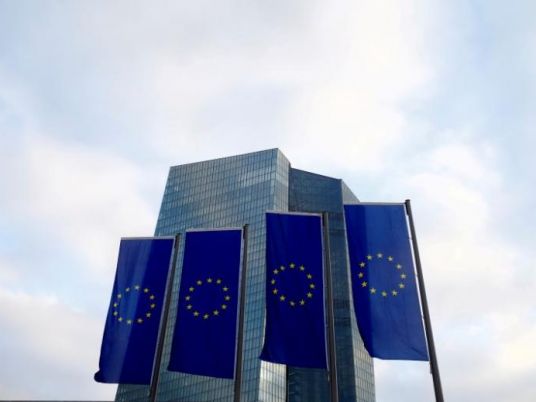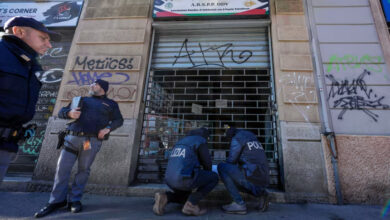
European Union leaders meeting in Brussels will try to gloss over their feud about who takes in refugees, a change of tactic that some diplomats have linked to Germany’s election in September.
Eastern states such as Poland and Hungary have refused to take in asylum-seekers to ease the burden on Greece and Italy, where most of the 1.7 million refugees and migrants entering the EU since 2014 have landed by boat after fleeing war and poverty in the Middle East and Africa.
Their reluctance to host a share of the arrivals has also angered wealthier countries such as Germany and Sweden, the preferred final destination for many of the migrants.
Despite political pressure, Warsaw, Budapest, Prague and Bratislava have been vehement and the issue has opened deep divisions in the EU at a time it needs unity to face Britain’s exit from the bloc.
“Germany has been pushing for relocation (of asylum-seekers) for a long time. Now they have said we’d better focus on where we can agree and come back to this in October,” a senior EU diplomat said.
“October comes after September,” the person said, stressing the link to the election in which conservative Chancellor Angela Merkel faces off against the social democrat Martin Schulz.
Merkel has come under fire for allowing more than one million refugees to enter Germany over the past two years.
Diplomats said the change of tactics by Germany, which hosts the highest number of refugees, came with a realization that no political points can be won now on the intractable dispute.
“The change of strategy is justified. We have to make progress in areas like the return of migrants and common standards in the asylum system,” a German EU diplomat said.
“Those achievements will give us the momentum to tackle the more disputed topics.”
Difficult to Accept
German Interior Minister Thomas de Maiziere said after meeting his 27 EU colleagues earlier in June there was “no way to find an agreement within the current style of negotiation.”
“I therefore proposed that we first focus on those parts in which agreements are possible,” he said.
A second senior EU diplomat saw this as a “clear change of strategy”. A senior EU official preparing the leaders’ summit said the aim was to “highlight areas in which there has been progress and convergence”.
As immigration spiked, EU leaders in 2015 decided by majority on an obligatory relocation system, outvoting four eastern states.
The bloc’s executive has since opened legal cases against Warsaw, Budapest and Prague for not meeting their obligations. Hungary and Slovakia challenged the scheme in the EU’s top court and a ruling is expected later this year.
A third senior EU diplomat said of the leaders’ discussion on migration, due on Friday: “The matter causing the biggest controversy – it’s not that it won’t be mentioned at all but it will not be the subject of a big debate or decisions.
“This theme will be largely avoided at this summit for purely political reasons. It’s the internal German situation behind this change of perspective.”
That is difficult to accept for Athens and Rome. They have called for cuts in EU funding for the eastern states if they do not take part in the relocation scheme.
After a 2016 deal with Turkey slashed arrivals in Greece, Italy is now the main gateway to Europe, with some 71,000 arrivals so far in 2017, about a third more than a year ago.
Another diplomat worried the eastern states were being let off the hook: “There is an effort to play it down. There is no way to get an agreement, so let’s avoid another bad quarrel.”
“But we want solidarity. It’s very tricky.”
To sweeten the situation for Italy and Greece, the leaders will say the bloc’s executive should propose more ways to help the frontline states, according to the latest draft of the summit conclusions, seen by Reuters on Thursday.
Compared to more than a million arrivals in the EU in 2015, last year saw around 360,000 sea crossings and the figure is expected to be lower this year. So while Italy remains under pressure, the sense of urgency has weakened for some other countries in the bloc.
Another Brussels official said: “The only way to manage migration is to keep it off the political agenda. You can’t win. Let’s take the heat out of it.”
Reporting by Gabriela Baczynska (Brussels); Additional reporting by Tom Koerkemeier and Alastair Macdonald, Writing by Gabriela Baczynska; Editing by Janet Lawrence; Reuters




